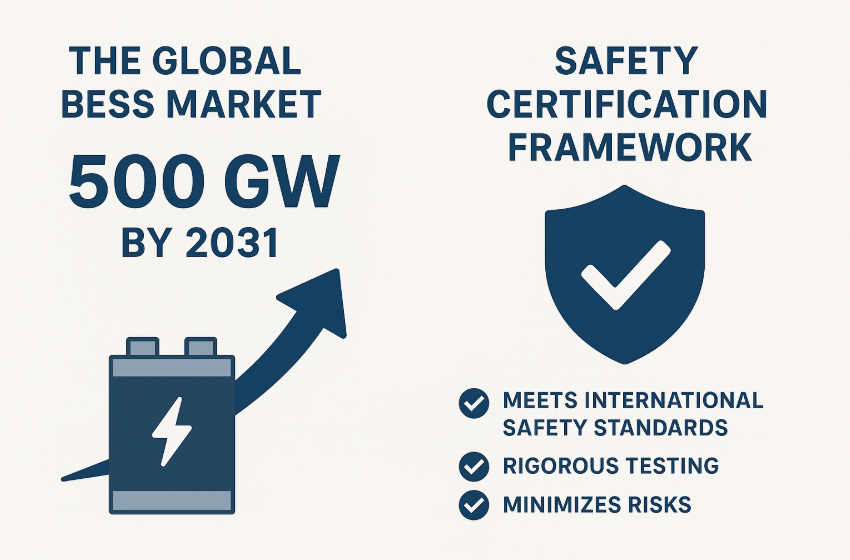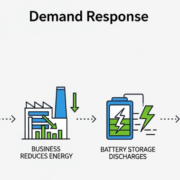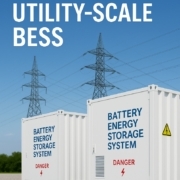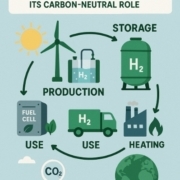The Global BESS Market: Projected Growth to 500 GW by 2031 and the Rising Importance of Safety Certification
Global BESS Market Forecast to 2031
The global BESS market is projected to grow exponentially, reaching 500 GW by 2031. This forecast is a reflection of the world’s transition toward clean energy, electrification, and grid modernization. Battery Energy Storage Systems (BESS) are no longer niche technologies—they are becoming central to the stability and flexibility of modern energy networks.
But with such rapid deployment, BESS safety certification has emerged as a critical factor. Without strong certification standards, the risks of fire, explosion, or system failure increase. These risks not only threaten energy reliability but also create challenges for regulators, insurers, and investors.
In this article, we explore the drivers of global BESS market growth, the importance of safety certification, and the frameworks shaping the future of energy storage systems.
Why the Global BESS Market Is Growing So Fast
The energy storage systems projected 500 GW growth is being driven by a combination of technical, economic, and policy-related factors.
1. Renewable Energy Integration
Wind and solar are now the cheapest forms of new power generation worldwide. However, their variability creates challenges for grid operators. Battery energy storage systems solve this problem by storing excess energy and releasing it when demand rises.
2. Grid Modernization and Stability
Utilities are increasingly deploying BESS for peak shaving and load shifting, frequency regulation, and emergency backup. These applications make the grid more stable and resilient.
3. Commercial and Industrial Adoption
The C&I sector is also embracing storage. Businesses use BESS to cut peak demand charges, integrate renewable energy, and secure backup power through certified BESS installations.
4. Policy Support and Incentives
Governments are backing storage projects through subsidies, tax credits, and regulatory frameworks. For example, the U.S. Inflation Reduction Act provides tax benefits for energy storage projects, while the EU Green Deal is pushing for accelerated deployment.
The Risks of Rapid Expansion Without Certification
The market opportunity in certified BESS installations is immense. Yet, expansion without robust certification frameworks introduces serious risks.
- Thermal Runaway – Poorly tested systems can overheat and cause chain-reaction fires.
- Fire Hazards – Uncertified systems lack the proven ability to prevent or contain fires.
- Grid Instability – Unsafe or poorly integrated BESS may destabilize the grid.
- Investor Concerns – How certification improves investor confidence in BESS is by ensuring long-term reliability. Without it, projects face financing barriers.
These risks highlight why safety risks of battery energy storage without certification cannot be ignored.
Why Safety Certification Matters for BESS
As the global BESS market forecast to 2031 shows explosive growth, safety must be at the forefront. Certification ensures that BESS systems:
- Meet UL 9540 certification for large-scale BESS to prove safe system integration.
- Comply with the IEC 62933 global standard for grid storage safety, ensuring global interoperability.
- Fulfill CE marking requirements for battery energy storage systems in the EU.
- Follow NFPA 855 fire codes for safe installation and maintenance.
This framework builds the foundation for commercial and industrial BESS safety compliance worldwide.
Key Certifications That Define Global BESS Safety
Different certifications cover different layers of BESS safety. Together, they form a BESS safety certification framework for renewable integration.
UL Standards: The U.S. Benchmark
- UL 1973 – Battery safety for stationary, EV, and mobile applications.
- UL 9540 – System-level certification for safe operation.
- UL 9540A – Fire testing method to assess thermal runaway risks.
IEC 62933: The Global Standard
The IEC 62933 global standard for grid storage safety sets the technical foundation for performance, installation, and system integration.
CE Marking in Europe
The CE marking requirements for battery energy storage systems ensure safety, environmental compliance, and market readiness within the EU.
NFPA 855: Installation Safety
Certification Builds Market Confidence
Beyond safety, certification also drives global BESS market growth by creating trust.
How Certification Improves Investor Confidence in BESS
- Reduces liability risks by ensuring compliance.
- Streamlines project permitting and regulatory approval.
- Enhances access to financing, as banks prefer certified projects.
- Demonstrates compliance with regulatory requirements for battery energy storage systems 2031.
Without certification, large-scale projects could face costly delays, stricter insurance requirements, or outright rejection.
Global Trends in Energy Storage Certification and Testing
The global trends in energy storage certification and testing point toward stricter, more harmonized standards. Several developments are shaping the industry:
- Harmonization of IEC and UL standards to reduce duplication.
- Performance-based testing to reflect real-world conditions.
- AI and digital twins for predictive safety assessments.
- Third-party testing labs expanding capacity to handle growing demand.
As the market scales toward 500 GW energy storage forecast, these certification trends will define how quickly projects come online.
Looking Ahead: Balancing Growth With Safety
The global BESS market forecast to 2031 highlights a future of rapid scaling, but it comes with responsibility. The industry must prioritize best practices for BESS fire and explosion prevention to protect communities and maintain market trust.
Future growth will depend on:
- Stronger collaboration between regulators and manufacturers.
- Adoption of international standards like IEC 62933 across all regions.
- Increased emphasis on C&I BESS safety compliance.
- Continuous innovation in safety technologies.
By aligning market expansion with robust safety certification, the BESS industry can deliver safe, reliable, and sustainable storage solutions that support the global clean energy transition.













Leave a Reply
Want to join the discussion?Feel free to contribute!